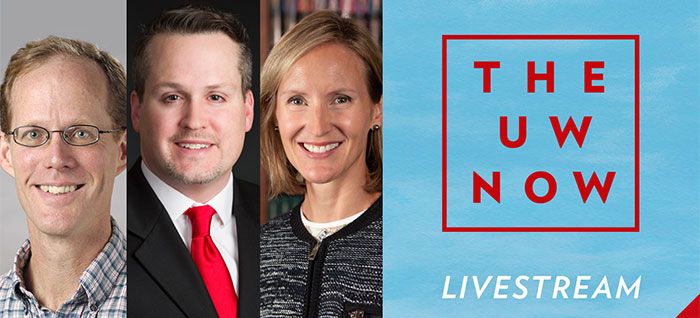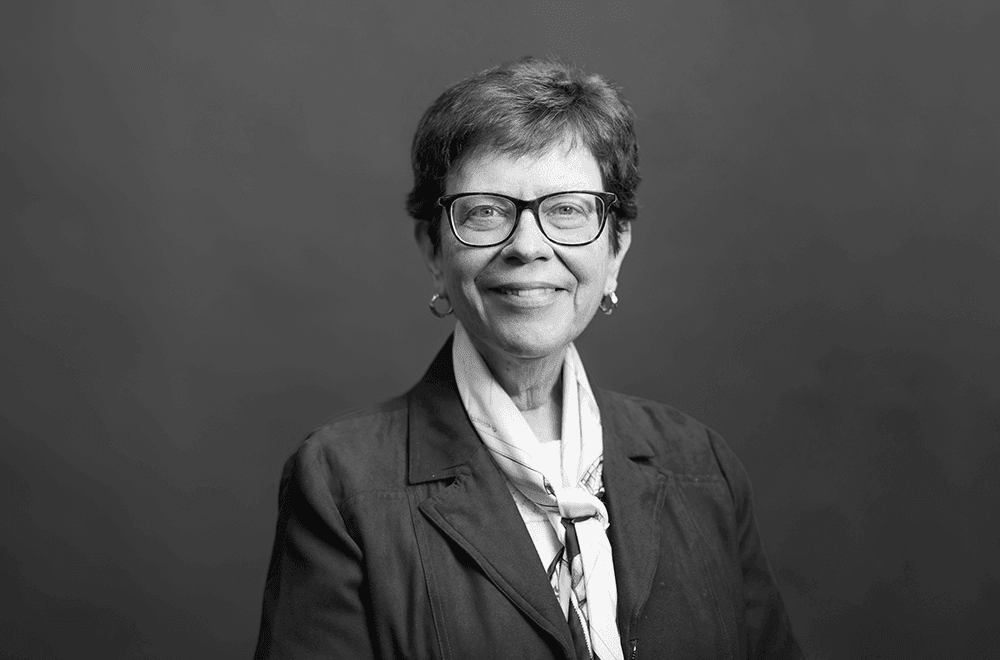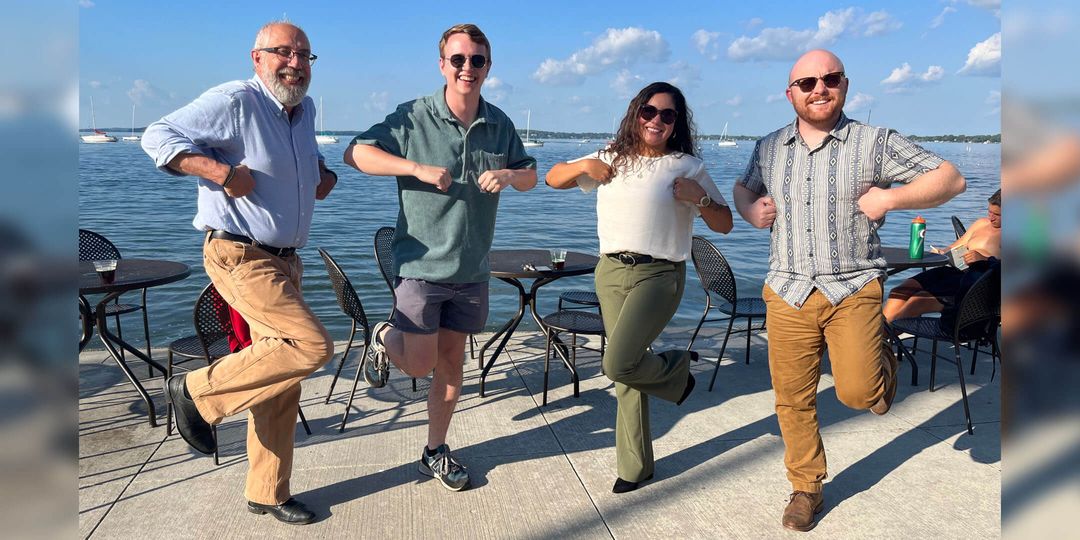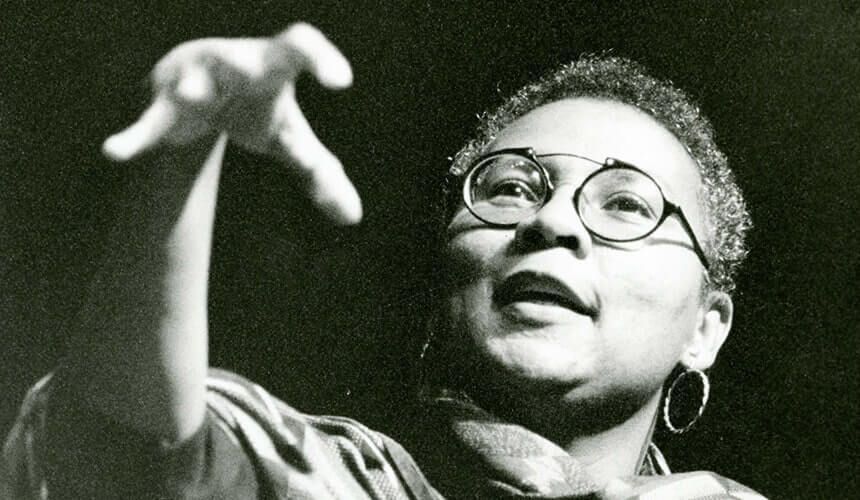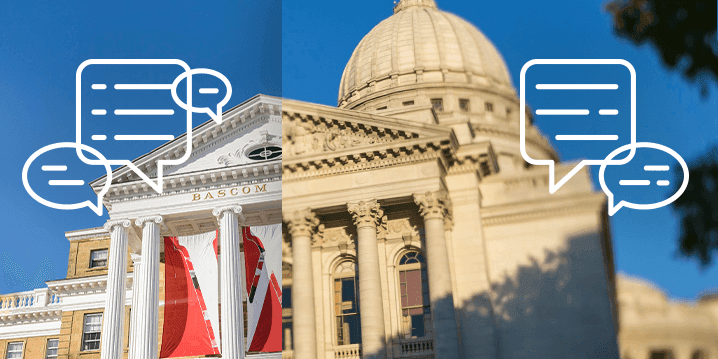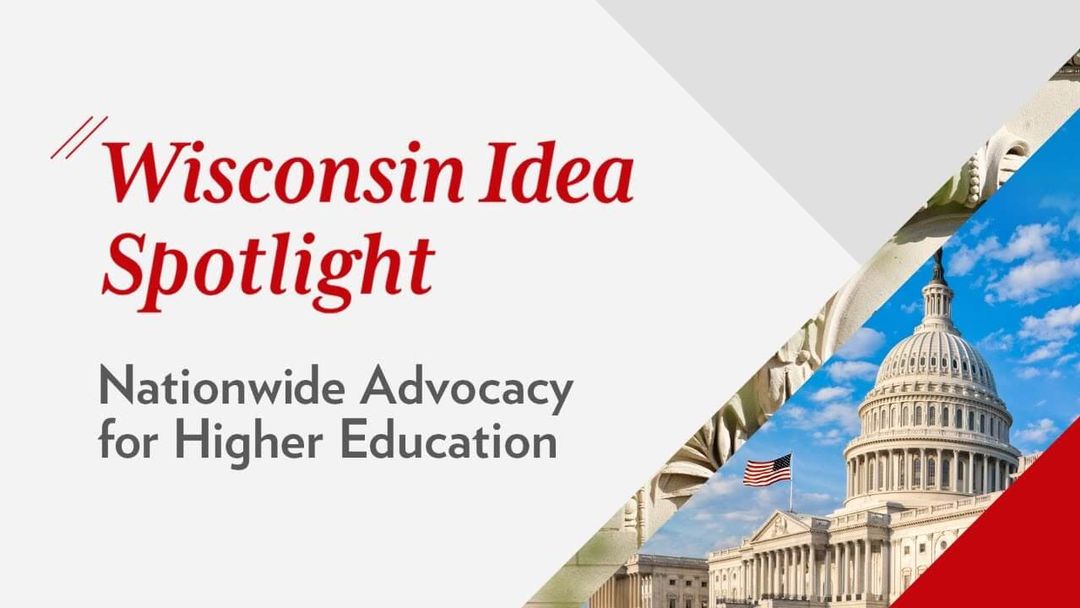MADISON, WI (January 13, 2021) — As the United States approaches the arrival of president-elect Joseph Biden’s inauguration, American politics reached a point of violence: while Congress certified Biden’s electoral victory, a mob stormed the U.S. Capitol.
Less than a week later, three UW faculty members discussed the state of American politics on The UW Now Livestream. “We’ve learned something about the fragility of democracy: it’s something that we always have taken for granted, as the longest-running democracy in the world. We always have assumed that things will be fine,” said David Canon, a UW professor of American politics. But “democracies are harder to maintain than you might think.”
Canon joined Ryan Owens JD’01, a professor of political science and affiliate faculty in the UW Law School, and Susan Webb Yackee, the director of the La Follette School of Public Affairs, for the January 12 episode of The UW Now, and the three faculty members discussed where politics are headed with host Mike Knetter, the president and CEO of the Wisconsin Foundation and Alumni Association.
Looking at Congress, Canon described the dangers of the current moment as well as reasons for optimism. “To see the Capitol being overrun like that, and the floor of the house and the senate, and our leaders hiding under tables in fear for their lives, really was one of the darkest moments in American political history,” he said. But he also maintained that this moment showed America’s resiliency. “We’ve seen the brilliance of our system of checks and balances designed by our founding fathers,” he said, noting that just a few hours after the riot, Congress was back in session, completing the electoral count.
Owens considered the U.S. Supreme Court and said that the judiciary offers continuity. “We’ve had a relatively stable Supreme Court over time,” he said. The major parties have moved farther apart ideologically, and Democrats have taken unified control of the presidency and congress, which will put the courts in a position to balance political change. “I do think that our federal courts are going to be busy over the next few years, given our polarization.”
Yackee studies the presidency, and she sees the polarization in Congress pushing much of Biden’s policy-making work into executive orders as he works to undo many of the things that the administration of Donald Trump did over the last four years. “He’s going to use [orders] to dismantle President Trump’s dismantling,” she said. This will be easier through orders because “executive orders are signed with the stroke of a pen and they’re removed with the stroke of a pen.”
Canon, Owens, and Yackee gave brief presentations and then took questions from viewers. To hear more from the speakers, watch a recording of The UW Now. The series is offered live on Tuesday nights via YouTube. The January 19 event will look at the history of social and political movements in America and around the world.
Media Information
Contact: Tod Pritchard, tod.pritchard@supportuw.org, 608-609-5217, @WisAlumni
